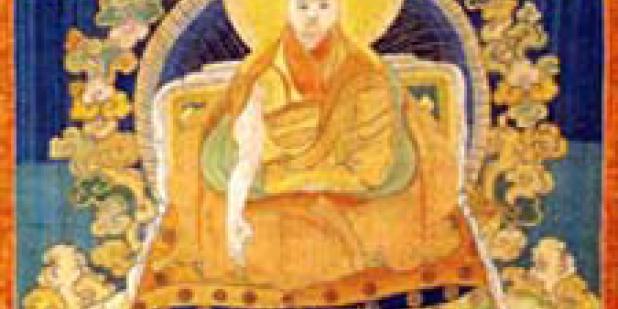Happy Lunar New Year from the USC US-China Institute!
Symposium on the Tulku System
Stanford University presents a public on Tibet's Tulku system.

Speakers:
Venerable Arjia Rinpoche
Venerable Telo Rinpoche
Venerable Thepo Rinpoche
Professor Donald Lopez, Jr.
Professor Paul Harrison
Mr. Tenzin Tethong
The Tulku (sprul sku) system has been an extremely important aspect of Tibetan society and Tibetan religious life for many centuries, and continues to this day to capture the imagination of people around the world. It is unique to Tibet, and to those cultures whose development has been influenced by Tibetan Buddhism, including Mongolia and the Himalayan states. While the notion of rebirth or reincarnation is found throughout the Buddhist world, nowhere else do we find this particular practice—of identifying young children as the rebirths of religious teachers and leaders who have recently passed away, and then installing them in their place—developed as thoroughly and as systematically as in Tibet.
The symposium is intended to provide an opportunity for in-depth exploration and discussion of the Tulku system, with the three tulkus attending offering an insider’s perspective on this extraordinary historical phenomenon. While the Tulku system can be considered from any number of aspects—historical, social, religious, political, psychological, educational, and so on—each participant will be addressing those features that he considers most important and interesting, while reflecting on his own experience.
At this stage in the history of the Tibetan people the political aspect of the system is a particular focus of attention, with the question of the Dalai Lama succession being an issue of controversy and concern across the political spectrum. There are, however, other significant and contested lineages that also raise issues of control and authority. At the same time, the system has broader implications in terms of religious leadership, identity formation, and cultural change, both on an individual level and in social terms, and we hope to use this occasion to address the future of this very distinctive Buddhist practice, both in the exile community and in Tibet itself.
Agenda:
The three Tulkus attending will first speak for 20-30 minutes each on their own experience of being a tulku and/or their current thinking about the Tulku System, its past, and the challenges which now face it. After a short break we will then move to a roundtable discussion of the issues, moderated by Professor Donald Lopez (University of Michigan) and bringing in Professor Paul Harrison and Mr Tenzin Tethong (Stanford University). There will be some time for the audience to ask questions at the end.
Featured Articles
We note the passing of many prominent individuals who played some role in U.S.-China affairs, whether in politics, economics or in helping people in one place understand the other.
Events
Ying Zhu looks at new developments for Chinese and global streaming services.
David Zweig examines China's talent recruitment efforts, particularly towards those scientists and engineers who left China for further study. U.S. universities, labs and companies have long brought in talent from China. Are such people still welcome?






